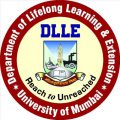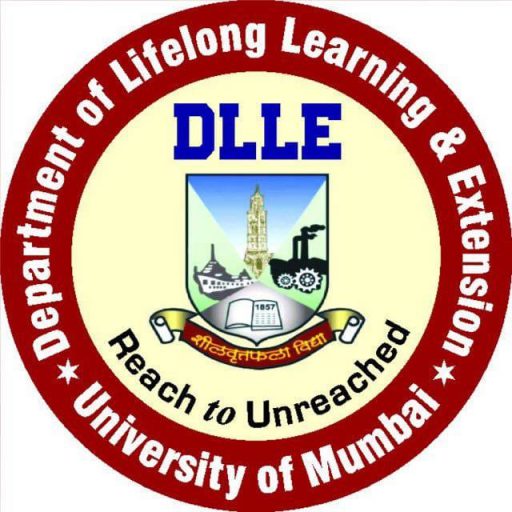
Department of Lifelong Learning & Extension

Student Counselling
- Mission & Goals
- Career & Counselling
A crucial element in starting counseling is training to making decisions beforehand. Student Counseling means one who imparts advises to another; Counseling Services include psychological, mental or emotional, Education and Career counseling. At the University level , the idea is guiding and assisting students throughout their study at the institute, providing appropriate assistance at each stage of the student’s development, growth or progress.
This process often should begins with a career counseling process designed to help students developing their self-knowledge and awareness of options needed to select an academic major or a cautious career direction. Students should be guided in thinking about their interests, values, competencies, and personal characteristics. They should be advised through conversation and exercises, otherwise students often discover beforehand unidentified interests. Now a days Career counseling is frequently offered on a one-on-one basis, but at times this service is provided through group workshops, classes, or computerized guidance systems.
Career counseling often includes the use of standardized assessment instruments such as the Strong Interest Inventory, the Self-Directed Search, or other instruments designed to clarify (to make clear or easier to understand) career interests, values, personality, or self-identified skills. As part of the career counseling process, students may be asked to research careers through either reading or interviews with professionals. A resource library is an essential component of the career services office. These libraries should have a collection of good journals and books on a wide range of counseling and career options including job search manuals and information on employers. Some information formerly provided in book form, such as directories of employers, is increasingly being delivered through the Internet.
Many of the internet web sites do have useful links. This can be carefully scrutinized and updated periodically, so that latest information about the desired options can be made available to the needy students. We aim to increasingly using the internet as a vehicle for counseling, outreach, training, and collaboration. As counseling, it is important that we let each other know about our efforts. This ever-expanding directory contains information on different internet resources set up by counseling centers, and how to access them directly from our computer.
Counseling means one who gives advises to another. Career Counseling, psychological, mental or emotional counseling. At University level, the idea should be guiding and assisting students throughout their study at the institution, providing appropriate assistance at each stage of the student’s development, growth or progress. This process often should begins with a career counseling process designed to help students developing their self-knowledge and awareness of options needed to select an academic major or a cautious career direction.
Students should be guided in thinking about their interests, values, competencies, and personal characteristics. They should be advised through conversation and exercises, otherwise students often discover beforehand unidentified interests.
Now a days Career counseling is frequently offered on a one-on-one basis, but at times this service is provided through group workshops, classes, or computerized guidance systems. When a student is asked to begin the exploration on a computer, an individual follow-up session with a counselor is generally encouraged. Career counseling often includes the use of standardized assessment instruments such as the Strong Interest Inventory, the Self-Directed Search, or other instruments designed to clarify (to make clear or easier to understand) career interests, values, personality, or self-identified skills.
As part of the career counseling process, students may be asked to research careers through either reading or interviews with professionals. A career resource library is an essential component of the career services office. These libraries should have a collection of good journals and books on a wide range of counseling and career options as well as job search manuals and information on employers. Some information formerly provided in book form, such as directories of employers, is increasingly being delivered through the Internet. Many of the internet web sites do have useful links. This can be carefully scrutinized and undated periodically, so that latest information about the desired options can be made available to the needy students.
The career services and counseling field has been strongly exaggerated by the rise of the Internet in the recent years. By the beginning of the twenty-first century, most career services offices had websites through which they offered career information and links to outside sites applicable to their student populations. Many also provided students with the option of scheduling appointments or campus interviews via the World Wide Web. Web-based databases, including employer databases, candidate résumé databases, internship databases, and job listing databases, are becoming increasingly common. In many cases, career services offices are forming partnerships with outside vendors to offer these services.
Many of the services named above are made available to alumni as well as current students, sometimes for a fee and sometimes at no charge.
A traditional function that remains an essential part of the career services role is helping students to develop job search skills. Career services counselors critique students’ ré sumés and letters, provide booklets on résumé and employment letter writing, and teach résumé writing, job interviewing skills, and job search strategies in group sessions. In practice job interviews, students are videotaped so they can see themselves in action. Some career services offices involve alumni or employers in critiquing résumés, conducting practice interviews, or leading workshops. Many also offer sessions on related topics such as networking, professional dress, or the transition to the work place. Etiquette dinners, designed to train students in the codes of rules governing needed for job interviews and professional dinners, have become popular events on many campuses.
That what we are currently experiencing right now here;
The career services and counseling process should help students connect with potential employers for better positions based on their studies. This is handled through a variety of methods. In on-campus interview programs, employers are invited to spend a day or more on campus, interviewing student candidates. Students who make a positive impression are later invited to the employment site for more extensive interviews.
Some campuses give students access to a large number of employers in one day by coordinating career fairs, at which employers are stationed at tables to screen candidates and give information about their job openings. A trend that became popular in the 1990s and continues to be widely used is the consortium job fair, in which a number of colleges collaborate to coordinate a large event for the students at all participating schools.
Additional strategies designed to connect students with employers are résum é mailing services, in which career services offices send batches of applicable résum és to requesting employers, and candidate matching databases, which do the same thing electronically. Some colleges disseminate booklets of student résumés or offer credential services, in which student’s résum és, letters of recommendation, and other application documents are mailed to employers at the student’s request. For students who choose to go to graduate school rather than enter the workforce, career services offices often offer services such as graduate school fairs and databases to assist students in identifying programs that meet their criteria.
Competency mapping is a process exercise to identify and describe competencies that are the most critical to success in studies or knowledge or at work.
Human resource and organizational development professionals have generated a lot of interest in the concept of competencies as a key element and measure of human performance. Competencies are becoming a frequently-used and written-about means of transportation for organizational applications such as:
• Defining the factors for success in studies or jobs (i.e., at school, college or at work) and work roles within the organization
• Assessing the current performance and future development needs of persons studying or holding jobs and different roles
• Assessing the current performance and future development needs of persons studying or holding jobs and different roles
• Assessing the current performance and future development needs of persons studying or holding jobs and different roles
• Mapping succession in school, college or possibilities for employees within the organization
• Assigning grades, compensation and levels to particular jobs and roles
• Selecting talented applicants for open positions, using competency- based interviewing techniques.
What has not been written about or explored as much over the past decade are the answers to the following two questions:
1. How do competency-based human resource management methods of defining and measuring human performance impact individual scholars or workers? What impact does an institution or organization’s use of competencies have on individual student or employees’ career management planning and actions in the long-term?
2. How can career management professionals help prepare their individuals to identify and present their competency strengths in study or job search situations?
The answers to these questions are the basis of this talk. However, before I answer these questions, I need to put a foundation with some definitions.
How Is “Competency” Defined in the Context of This talk?
Many definitions of the term “competencies” have arisen over the past decade. The definition that I most prefer is as follows:
Competencies include the collection of success factors necessary for achieving important results in a specific study, job or work role in a particular institution or organization.
Success factors are combinations of knowledge, skills, and attributes (more historically called “KSA’s”) that are described in terms of specific behaviors, and are demonstrated by superior performers in studies, research or those jobs or work roles. Attributes include: personal characteristics, individuality, motives, values or ways of thinking that impact an individual’s behavior.
Competencies in institutes or organizations tend to fall into two broad categories:- Personal Functioning Competencies. These competencies include broad success factors not tied to a specific work function or industry (often focusing on leadership or emotional intelligence behaviors).
– Functional/Technical Competencies . These competencies include specific success factors within a given study function or industry.
The emphasis will be on how both types of competencies impact the ways career professionals can advise their clients to use competencies in their personal career management efforts.
• Competency Map. A competency map is a list of an individual’s competencies that represent the factors most critical to success in given studies or jobs, departments, organizations, or industries that are part of the individual’s current study or career plan.
• Competency Mapping. Competency mapping is a process an individual uses to identify and describe competencies that are the most critical to success in studies or a work situation or work role.
• Top Competencies. Top competencies are the vital few competencies that are the most important to an individual in their ongoing career management process. “ Importance to the individual” is a sensitive decision based on a combination of three factors: past demonstrated excellence in using the competency, inner passion for using the competency, and the current or likely future demand for the competency in the individual’s current position or targeted career field.
Research is ongoing about the nature of competencies that are important for success across many. There are a number of sources that describe some very common personal functioning competencies found to be important for employees at all levels across organizations. One good quote in this area is a basic set of 6 competencies would differentiate the top quartile of performers from the rest in most positions in an organization are; Initiative, Influence, Results Orientation, Teamwork, Service Orientation, and, Concern for merit.”
